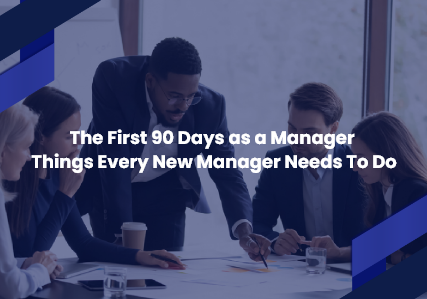9 Steps to Unlock Career Growth in First 90 Days.
Congratulations! Your job search campaign has resulted in getting the job you’ve always wanted. Celebrate your accomplishment; you’ve worked hard for it. However, once your celebration is over, it’s time to focus on more than just turning up for work; it’s time to plan your first 90 days career growth strategy.
I’ve successfully scaled the career ladder for individual contributors (IC) in top tech firms – Microsoft and Salesforce. In my experience, the first 90 days are invaluable for unlocking short- and long-term success.
It must be noted that this article is written from a Software Engineer’s (Individual Contributor) perspective, working in a top-notch tech firm in a highly competitive environment. But the principles apply to other domains and other firms as well.

Importance of First 90 Days:
At this point, you might be wondering, how much are the first 90 days important, anyway?
The answer is: More important than the following year or two!
The first 90 days set your stature in the team and your relative placement in the mindset of your manager, and thus in your new company. If you mess it up, it may cost you a whole year or two to set the records straight, and you’ll be able to get the rewards you deserve only after you have undone the damage to your reputation. Likewise, if you decide to switch the team or company to reset your 90 days counter, it is likely that you will need to spend almost a year going through the process of job hunting and then going through another on-boarding process. Not to mention any bad past referrals which may hinder your job search or career growth.
On the other hand, having a solid foundation of the first 90 days will allow you to build a skyscraper of a career for years to come – provided you are in the right team and firm.
The 9 Point Secret Sauce:
Here is my 9 points secret sauce for career success, by leveraging the first 90 days:

1. Your Edge on Day 1: Fresh Perspective on Everything!
As a fresh pair of eyes to the product, team, and processes, you will have many ideas for improvements. You may observe issues and areas of improvement which the current team has accepted as usual for years.
Note down your ideas, but keep them to yourself! You do not have the credibility yet to be taken seriously. That engineering process can be improved by following the one you had at your last job; the code review tools that can be replaced with new ones, the difference caching can make in certain areas – all can wait.
It is essential to understand that America has an “Expert Culture.” This means, unless you’re seen as an expert at something, your opinions may not carry much weight. I learned this the hard way when I had the title of “Software Engineer”, and I used to share new product ideas – they used to get discarded pretty quickly, even if they had merit. Therefore, it is always wise to focus on establishing yourself as an expert before sharing your ideas.
By not immediately sharing your ideas, you will also prevent yourself from overusing the phrase “In my previous job …”. Thus helping you to adapt quickly and feel at home sooner rather than later. Also, spending time with the team will help you uncover the rationale behind certain decisions and will save you from the embarrassment of sharing ideas that are already thought through and discarded by the team before your joining.
If you’re a very experienced engineer joining a relatively junior team, you might be tempted to share your wisdom and ideas with the team from day one. Hold your horses! It is still possible that there is a sound rationale behind how things are working in the team. So it is wiser to hold back your initial knee-jerk reactions and wait for the right time.
“Come up with ideas for improvement, but DO NOT SHARE yet.”

2. Be Very Wise About Your Commitments.
As a fresh engineer to the team, everyone subconsciously judges you to see how good you are. Your manager, your skip manager, your peers, your cross-functional teammates. All are subconsciously gauging if they can rely on you. This, in turn, decides your credibility in the team and with the management.
The key to establishing your credibility is to **always** accomplish what you commit during your first 90 days at work. The good news is; generally, expectations are low, and engineers are given time to settle down at their roles and to ramp up on the tech stack. Generally, you’ll be given a relatively minor or easier task to begin with. This means that you have a shot at impressing your team with your work by ensuring that you meet your commitments.
When asked for time estimates, always keep buffers and deliver what you commit. This is how you will start becoming dependable and credible in your team and management’s view.
Note that it is remarkably common to have no idea how long a task will take when you’re new. It is okay to say, “I am not sure; give me a couple of days to figure it out.” And then dig into code to figure out what it will take to get the task done. Even experienced developers, working for years on identical products, sometimes have no idea how long a particular task will take.
Having said the above, it is okay to be a bit late than submit low-quality work. Remember, only the best quality software ever gets used in the software business, and the substandard stuff eventually gets discarded.
“Keeping commitments determines your credibility.”
“Only the best software ever gets used; build the best!”

3. Always get Great Peer Feedback.
In top tech companies, promotions almost always depend on 360-degree feedback—Means feedback from your peers, cross-functional team members, managers, seniors, juniors, etc. Make sure you make an excellent first impression on every person you interact with. That junior who walks up to you asking for your help, that architect reviewing your design and providing feedback, that code that you wrote and put up for review, all will be contributing towards your first impression with personnel you interact with. Be conscious of this fact and do your best to impress them.
Follow up on what you commit to your peers and ensure that you come across as an excellent resource. After establishing a great first impression, work hard to maintain it.
I’ve worked in environments ranging from multi-billion dollar decades-old teams to freshly assembled teams in startups. In mature, long-established teams, it takes a lot of effort to establish a great impression – and it may take one mistake to revert all the hard work. The startups and newly established teams generally have an easier path to develop a great impression. The reason is that mature teams have collectively seen different types of resources come and go, and they reserve their judgment before really giving anyone a 5-star review. In contrast, the younger teams are hungry to deliver and appreciate every small success which comes their way. Regardless, sticking with creating a great first impression with every person you interact with is the best way to go.
“Strive hard to create a great first impression with every person you interact with, work even harder to maintain your impression.”

4. Focus Very Intensely on Your Core Job.
Without nailing down your core job, you won’t have the wings to fly. It is okay to say No to any additional or peripheral work that comes your way if you think it will affect your core job.
For example, you’re given a feature to develop, which needs to ship this quarter. In daily scrum, you have a guest architect from another team explaining the initiative on improving product performance across the board. He wants a volunteer from your team to collaborate to implement the changes required to get the performance improvements.
While this may be an excellent opportunity to raise a hand, create a broader impact, and get accolades from multiple teams. This may not be the best move during your early days at a job as your current commitments may suffer, and you may end up not being able to deliver on either of the two obligations with high quality. Therefore, despite putting in more effort than your peers, you end up in a lower career rating bucket at the end of the year.
Your best shot during early days is to focus on your core tasks and deliver them with excellence during your first 90 days. Take up additional work *only* if you believe you can deliver with excellence.
Second Scenario
Another scenario is that you may be asked to do multiple tasks related to your core job in parallel. Ask your manager to help prioritize the tasks, and then do them one by one in the mentioned priority. This way, you’ll be able to give your undivided attention and complete focus to each task, thus giving yourself the best shot at delivering high-quality results every time.
Another important note is that I put points on commitments and peer feedback above this point on core job. The reason being that you’ll start getting judged even before you deliver your first major deliverable. Therefore it is important to be aware of the perceptions you create about yourself from day one.
“Focus intensely on your core job if you want to soar. Cut distractions in your work and personal life if you have to.”

5. Go Out of Your Way to Help Others.
Building technology is like a team sport. In my experience, stack ranking and intra-team competition are not the best practices and eventually fail. There is a Harvard Business Review case study on Microsoft’s lost decade. Everyone has to work together in one direction for delivering massive systems – like a soccer team laser-focused on winning. This means that you have to create “assists” and opportunities for others as much as you need to score goals.
This relates to point three as well. Remember, you need great feedback from your peers. Going out of your way to help others means that there is a high likelihood that the resource you helped out will put in good word for you when included in your following peer feedback. You have to build your allies in the workplace who would vouch for you for long-term success.
Everyone you help may eventually not put in a good word for you. However, you have to sow enough seeds for yourself that you eventually get a healthy set of fruit bearing trees.
“Helping others will help your career. Simple.”

6. Be Hearty Yet Genuine in Your Praise for Others’ Work.
For your peers reporting to different managers, be generous with writing emails to their managers praising their work. Your peers will do anything for you if you do that.
There may be times when you need help. It is okay to raise your hand and ask for help from related personnel. Remember to acknowledge the service you receive by emailing them the thanks or thanking them in front of their managers.
The credit for this piece of advice goes to Dale Carnegie’s book “How to Win Friends and Influence People,” in which he has a whole chapter dedicated to this topic.
“Build your political capital. Genuine compliments for others’ work builds you long-term allies.”

7. Grow Your Potential: Build a Learning Plan.
Understand that you and only you are in charge of your career. The manager is there to help and guide you, but you have to identify, build and walk your path!
Put your learning plan in place and communicate it to your manager. The sure shot way to grow in tech as IC is to gain depth in your work. If you’re a backend engineer, understand the underlying stack, the internals of the O/S you use, the working of your runtime, your database, etc. For front-end engineers, learn more about your tech, javascript, ajax, underlying protocols, latest frameworks, and their internal workings, etc.
An in-depth understanding of your stack will put you among the very elite engineers real quick. When tricky problems hit the product – sooner or later they will – you’ll be the one rescuing the team!
“The most sure-shot way to grow a career in tech is to build depth of understanding. Keep learning!”

8. Time to Unleash: Sharing Your Ideas.
Once you’ve done the above 7, now is the time to get your potential unleashed. Towards the end of your 90 days, you will have built sufficient credibility and goodwill to be taken seriously. Take the ideas out of your notebook from step 1 and review them.
Figure out the highest priority for your boss, skip manager, and pick your idea related to that and bounce off with your manager in a 1:1 meeting. See if it can be executed. Drive it to completion if your boss likes it.
In general, it is best to socialize your ideas with relevant personnel only and not throw them out in more extensive meetings unless asked to. The reason is that you want to take feedback on your ideas and refine and improve them to a point where they can be implemented. Doing it one person at a time gives you a chance to incrementally refine the idea to a point where every new person you share it with starts liking it.
“Understand your manager’s priorities, discuss your most impactful ideas with him and drive them to completion.”

9. Mic Drop: Ensure Team Success.
While 90 days may be too short a period to deliver a team-level success, it is a super strong focus to have. In the tech business, success generally leads to an exponential growth in revenues. This means that when the team succeeds, there are enough rewards for everyone to enjoy. Conversely, when the team fails, everyone’s career may suffer. Keeping a focus on team-level success will enable you to increase on the career ladder as you’ll identify and pick up tasks that matter most towards team goals. Thus allowing you to create a positive impact and make a difference in your team.
Remember: Nothing puts your career on a fast track like helping your team succeed. One wildly successful team may be all you need in your software engineering career!
An important benefit of this mindset is that your manager will automatically be successful if your team succeeds. Successful managers generally have the leverage to grow the careers of their reports.
“Nothing accelerates your career like making your team successful.”
Concluding Remarks:
You will be on track for a promotion if you take care of the above. Heck, my career got fast-tracked based on this formula, and I was almost always seen among top performers in my team. When my name was put up for promotion to Lead level at Chatter cloud in Salesforce, I had more than 20 people vouching for me within one year of joining the team. Likewise, I had dozens of people testifying me for a subsequent role change to a senior manager or the next promotion. How did I get that? I followed all points in this article to the letter.
At Scrum Teams, our best engineers not only do a great job, but they also help make their teams successful. Helping the groups and others succeed is a critical performance criterion for career success!








